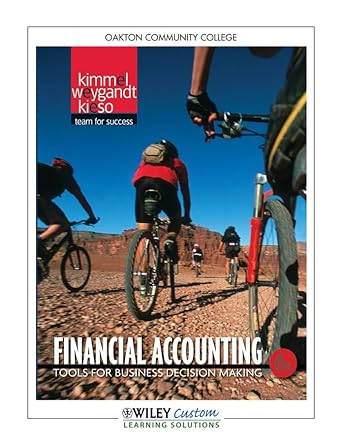Question
[The following information applies to the questions displayed below.] Cane Company manufactures two products called Alpha and Beta that sell for $190 and $155, respectively.
[The following information applies to the questions displayed below.]
Cane Company manufactures two products called Alpha and Beta that sell for $190 and $155, respectively. Each product uses only one type of raw material that costs $8 per pound. The company has the capacity to annually produce 122,000 units of each product. Its average cost per unit for each product at this level of activity are given below:
| Alpha | Beta | |||||||
| Direct materials | $ | 40 | $ | 24 | ||||
| Direct labor | 34 | 28 | ||||||
| Variable manufacturing overhead | 21 | 19 | ||||||
| Traceable fixed manufacturing overhead | 29 | 32 | ||||||
| Variable selling expenses | 26 | 22 | ||||||
| Common fixed expenses | 29 | 24 | ||||||
| Total cost per unit | $ | 179 | $ | 149 | ||||
The company considers its traceable fixed manufacturing overhead to be avoidable, whereas its common fixed expenses are unavoidable and have been allocated to products based on sales dollars.
10. Assume that Cane expects to produce and sell 69,000 Alphas during the current year. A supplier has offered to manufacture and deliver 69,000 Alphas to Cane for a price of $136 per unit. What is the financial advantage (disadvantage) of buying 69,000 units from the supplier instead of making those units?
11. How many pounds of raw material are needed to make one unit of each of the two products?
12. What contribution margin per pound of raw material is earned by each of the two products? (Round your answers to 2 decimal places.)
Step by Step Solution
There are 3 Steps involved in it
Step: 1

Get Instant Access to Expert-Tailored Solutions
See step-by-step solutions with expert insights and AI powered tools for academic success
Step: 2

Step: 3

Ace Your Homework with AI
Get the answers you need in no time with our AI-driven, step-by-step assistance
Get Started


